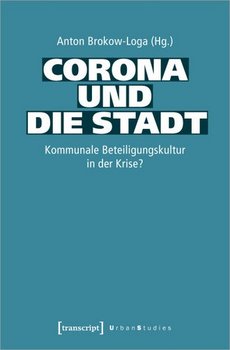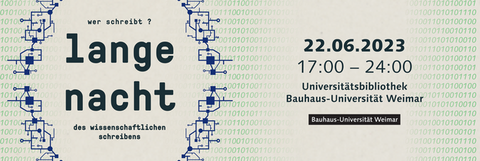Newsletter 04.2023
1. New computers in public areas and open source initiative
During the last few weeks new PCs were installed at almost all computer-equipped library study spaces. The new PCs are connected to the SCC’s centralized desktop management and feature Windows 11. In addition to the usual software suite featuring MS Office, AcrobatReader, Endnote and Citavi, they also feature the open source software LibreOffice, which can be found in the start menu as »LibreOffice 7.5«. You can save files in both LibreOffice and MS Office format.
In cooperation with the SCC we started an open source initiative and would like to introduce LibreOffice as a good alternative to MS Office. At the »Long Night of academic writing« you will have the opportunity to get to know LibreOffice better during workshops and activities. We plan to also have contact persons available for you to contact with specific questions by phone or e-mail. At the moment it’s still early stages for this initiative – but keep an eye open!
2. Alumni Discussion with Prof. Gerd Zimmermann
In a two-part discussion on the university’s history as part of the »Alumni Discussions« series, Prof. Gerd Zimmermann, who significantly shaped the university’s fortunes across three terms as rector after 1992 until 2010, will talk about his studies of architecture at the Hochschule für Architektur und Bauwesen in the second half of the 1960s and his research and teaching activities during the 1970s and 1980s. A special emphasis in his discussion with library director Dr. Frank Simon-Ritz will be places on the years 1989 to 1992, the Wende period and the resulting restructuring of all living and working conditions in the former GDR. Zimmermann will address this as both a contemporary and eyewitness and as a contributor. The second half of the discussion will concern setting the course for the university’s further development from 1989 on, which resulted first in the creation of the design faculty in 1993, then the creation of the media faculty in 1996. In the same year, the university chose its new name »Bauhaus-Universität Weimar«. Zimmermann’s intent is for this name to be understood both as an agenda and of course as a signet of creativity and internationality.
3. »Corona und die Stadt« - new publication co-funded by Open Access publication fund

The Open Access book »Corona und die Stadt. Kommunale Beteiligungskultur in der Krise?« (»Corona and the city. Municipal participation culture in crisis?«), edited by research assistant with the chair of Urban Studies and Social Research Brokow-Loga and published by transcript, was recently co-funded by the Open Access publication fund at Bauhaus-Universität Weimar.
Publication was co-financed by the state of Thuringia’s Open Access support program. The book is freely available online under CC-BY license on the publisher's website as well as in OPUS Weimar.
The Open Access publication fund at Bauhaus-Universität Weimar has enabled co-financing the publication of Open Access monographs since 2019. Please consult our website for funding criteria and how to apply.
4. New look for the electronic periodicals library
The user interfaces of the three significant library services DBIS (Database Info System), RVK (Regensburger Verbundklassifikation classification system) und EZB (Elektronische Zeitschriftenbibliothek – electronic periodicals library) are being successively modernized and redesigned to match. You can already see the results in the EZB, which now features the new EZB logo, a new colour design and the new font Mulish. Take a look for yourself the next time you search for a journal!
5. Reminder! University library book sale
Don’t miss our book sale! On June 7th and 8th between 10 am and 3 pm you can buy withdrawn books from all subject areas at small prices.
6. »Gefesselte Blicke« Film posters of the 1920s – exhibition from June 14th
Visually oriented mass media had a breakthrough in the 1920s. However, most films from cinema’s early days have been lost, and only their colourful posters remain to tell us of the variety in film cultures of the time. From June 14th to October 10th 2023 the Weimar university library will host the exhibition «Gefesselte Blicke«, showing a selection of these historic large format materials, along with other advertising materials and posters from cinema’s early days. The focus of selected posters, featuring 14 originals and 25 reproductions, will be on the gender relations of the era. You are invited to the vernissage on Wednesday, June 14th at 5 pm!
The exhibition is held in cooperation between Bauhaus-Universität Weimar and Universität Erfurt and their respective libraries. From November 2023 the exhibition will move to the Erfurt university library.
A catalog made by students in a cooperative lecture at the Erfurt and Weimar universities lists the documents in detail and makes them talk.
7. RDM-Days 2023: »Back to Basics«
On June 20th and 21st the RDM-Days will be held again! On day one you can look forward to general workshops on research data management and the latest news from Thuringia. On day two specific services will be presented, and there will be a special focus on legal aspects. Please feel welcome to hand in questions in advance that will be answered during the workshops. The events will be held online. Visit the Thuringian Competence Network Research Data Management's website for more information on the schedule and registration links.
8. Long Night of Academic Writing at the University Library

Under the motto »who is writing?«, the Bauhaus-Universität Weimar invites students, doctoral candidates, university staff, and all other individuals interested in writing to the 9th Long Night of Academic Writing on 22 June 2023 from 5 pm till midnight. In workshops, discussions and lectures on chatbot technologies and algorithmic text generators, we will be tinkering with possible new ways of dealing with the »artificial« generation of knowledge and texts. The latest developments in the field of algorithmic text generators pose diverse questions to the academic and literary enterprise that fundamentally impact authorship. How is writing change by large language models, and what are the consequences for writers and readers? We want to critically confront these questions and discuss these in an open dialogue. In addition, there will be general sessions on writing in the university context.
Special guest of the evening will be the literary and cultural scientist Jenifer Becker.
Find further information and soon also the detailed program on the Long Night website.
Stefanie Röhl
Sachgebietsleiterin
Informationsdienstleistungen
